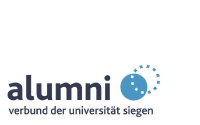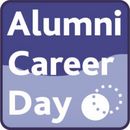Career entry in Germany in view. Alumni Career Day 2020: Online offers for international students
On the 27th of November 2020 the Alumni Office, together with the international office’s SieguVer project, held their latest edition of the Alumni Career Day.
Like so many other events this year, the Alumni Career Day took a slightly different form than in previous years. However the online format did not prevent a valuable exchange of ideas and advice between the workshop leaders and the participants. This situation was used as an opportunity to hold a special edition of the alumni career day featuring two workshops, both of which focused on helping international students to begin their career in Germany after they have completed their studies. The participants were overwhelmingly enrolled in English language master programmes, including Mechatronics, Roads to Democracies, and Economic Policy.
Each workshop was given by a former alumna of the University of Siegen who is now working in human resources at a company with a large workforce in Germany. Demand for both workshops was very high, perhaps reflecting difficulty faced by many students in finding a job during this turbulent year.
The first session was called “Kick-off your career in Germany” and given by Johanna Rodheut, who works for Nufarm Europe. The second was called Know your USP and Use it!” and was delivered by Julia Hartmann who is employed at Bayer.
Feedback from both workshops was overwhelmingly positive; we would like to extend our most sincere gratitude to Johanna Rodheudt and Julia Hartmann for making this year’s alumni career day so engaging for the students of their former university.
"Kick-off your career in Germany"
The first workshop was given by Johanna Rodheudt. Since graduating from the University of Siegen with a bachelor’s degree in business administration, she has worked at a range of different companies, and is now a HR business partner at Nufarm Europe GmbH. Nufarm GMBH is a global company specialising in agriculture, developing and manufacturing products to protect seeds and crops against weeds, disease and pests.
Johanna began the workshop by asking participants about their expectations. Common themes which arose from the audience included writing an effective CV and cover letter, how to prepare for interviews, general information about the German job market and German companies, and what kinds of things are companies looking for when they look for new employees.
Johanna gave an overview of the German job market for graduates. It is an ideal place for international graduates to work because it has a low unemployment rate, produces a high amount of goods and services which are exported around the world, and it has an aging workforce which will need to be replaced in the near future.
Finding the right job takes motivation and an idea of what it will look like. To facilitate this JR asked participants to take a few minutes to draw their ideas, without words, about what their ideal job would look like. After a few minutes some participants shared their ideas with the rest of the group, one visualised themselves as an analyst in Frankfurt, working in an office with graphs and data, another had actually drawn something on their computer, their drawing was of them inside a workshop, containing various types of robots.
Next she went through with some general advice on job hunting, planning ahead, and making a good impression on a company. Finding a way to work with a company before graduation can be a very useful way of building up a working relationship before applying for a graduate position.
One thing which students should not do is to give up on searching for their ideal job because of the impacts of COVID-19, while some sectors had been adversely affected by lockdown, many others, Nufarm included, were not as effected, and they are still hiring graduates for entry-level positions. Demand for crop protections is still there even in a global pandemic.
The next topic which was covered was how best to tailor a CV and cover letter, those reading through applications are often unable to spend a lot of time reading through it, so it is important to immediately show that you have the necessary skills and experience to the reader. With her background in HR, Johanna was able to share her expertise with the participants on how to do this as effectively as possible.
If the CV and cover letter make a good impression, then the applicant will be invited to one or more interviews. These interviews are designed to gather information about the applicant, their motivation, availability and salary expectations. One thing which is important for applicants is to be authentic; they want to make sure that the company is also right for them, because working is something which we do for most of our lives. Another important piece of advice for online interviews, which have become increasingly common throughout 2020, is to practise beforehand with a friend to make sure that the camera and background are positioned to make the right impression upon the person doing the interview. During the interview the applicant should try to show why they want the job, why they want to work for that particular company and why you are a good fit for the position. Another important aspect is to think about your salary expectations before the interview, as the salary you can expect will vary in accordance with the degree someone has and the living costs of the location where they will be based.
Know your USP and Use it!
The workshop was given by Julia Hartmann, who began by briefly introducing herself and the company she works at. After receiving her bachelor’s degree in business administration in 2013, she took on an internship at Bayer to gain some experience before doing her master degree. However her internship went so well that she decided to stay at the company, and has been working there ever since. She is currently a Global Talent Management Expert and is based in Düsseldorf.
Bayer is a multinational company based in Germany with the motto “health for all, hunger for none.” It specializes in three areas: crop science, pharmaceuticals, and consumer health. Over 100,000 people work for Bayer across 93 countries. Currently their graduate intake comprises of 43% with a degree in natural science, 22% from engineering, and 20% from business administration/economics as well as smaller amount of lawyers, social scientists etc. There are numerous ways for a graduate to join Bayer, as well as directly applying for a position, Bayer also offers the opportunity to participate in mentoring programs, trainee programs and internships based in Germany and abroad.
To begin the workshop, the workshop leader took through different companies and spoke about the USP (Unique Selling Proposition) of each company. Seeing these USPs highlighted the importance of self-marketing in business. However self-marketing is not only important for companies, it is important for people too, particularly when they are applying for a job. In order to be successful at this, it is important for applicants to highlight what makes them a particularly compelling future employee for the company. For this it is important for an applicant to know and advertise their own personal USP.
When it comes to defining a USP, there are three things to keep in mind:
Passion & Personality: think about how someone’s free time is spent, who are they, what motivates and inspires them? Knowledge & Strength: What skills, experience, internships does someone have, what are they an expert in? Job requirements: do the other elements fit the job, and what return on investment can you bring to the company. Applicants have to consider how to prove these things to the company that they are interested in working for.
To give participants the chance to reflect on these ideas, they were were divided into groups of two and given 20 minutes to interview one another about these three areas to try to come up with a USP for each person. After the breakout session concluded participants then shared some potential USPs they could utilize in their future job applications.
Once someone has an idea of what their USP is, they then need to think about which position to apply for by considering three things: Why this job? Why this company? Why me? The answers to these three questions should be made as clear as possible in every job application. Ultimately both employee and company should be well-suited for one another, life is too short to simply.
The participants were then grouped into their courses of study, which included, Mechatronics, Roads to Democracies, Economic Policy, Nanoscience and Nanotechnology, and Human Computer Interaction. Each group was then tasked with finding an entry level position relevant to their field and discussing what to consider when applying for this particular job, and how to make their USPs fit to this positions.
Before concluding the workshop the participants raised some questions and shared their experiences in thinking about their USP and job applications.
Feedback
Holding these workshops online enabled master students to participate who have not been able to travel to Germany yet due to travel restrictions. For master students who are approaching the end of their studies, it is particularly important for them to begin to consider their career options in future. Both sessions gave participants the chance to talk to people who are engaged in the job application process at their companies and to ask them questions on how to make the right impression when applying for a new position. By the end of both sessions participants had learnt many useful insights and strategies to assist them with starting their career in Germany after their studies.
Ben Wrigley, Alumni-Team



